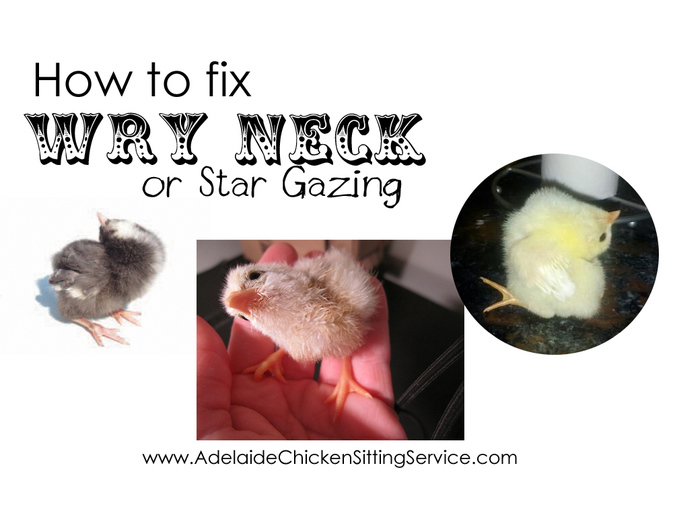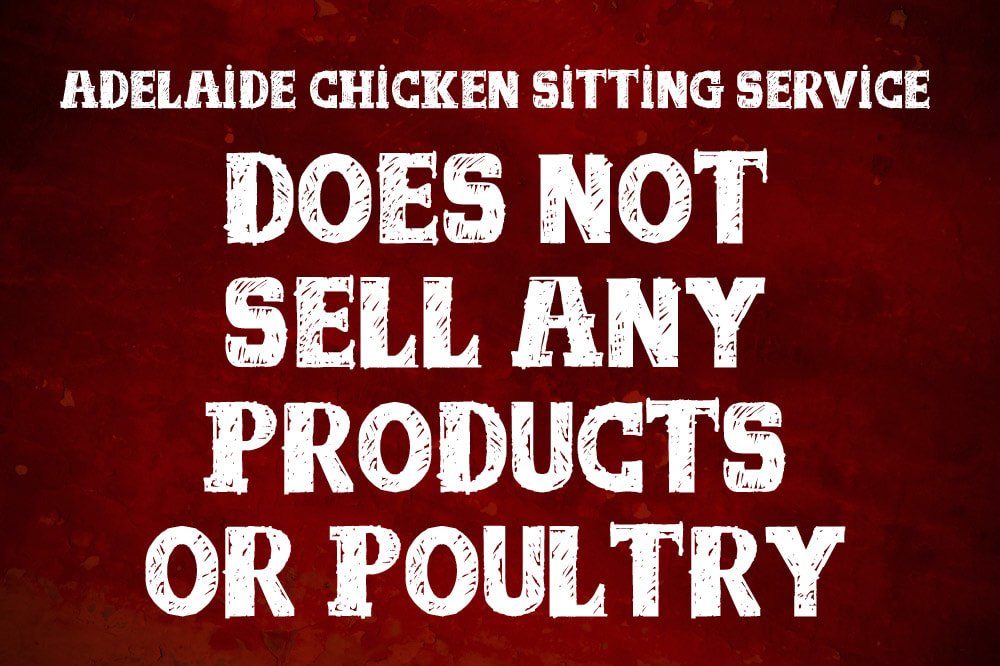Adult poultry are more likely to only suffer Wry Neck due to a bad diet. This condition seems to be more common in chicks due to parents genetics and health.
Remember to isolate your affected bird/s immediately to prevent bullying from the other birds.
What is Wry Neck?
Poultry with the disorder cannot hold their heads up on their own and as it progressively gets worse, affected birds start to fall over or lie on their backs unable to walk freely on their own and appear to walk backwards. With an inability to bend their neck to access food and water, they are likely to starve and become dehydrated, so they need your help.
Wry Neck is a Vitamin E deficiency that can be corrected.
Birds that do not show significant improvements after a period of treatment may need to be culled.
Causes of Wry Neck
Wry Neck can be caused by a number of factors,such as:
- Vitamin deficiency
- Genetics
- Poor nutrition during development in egg
- Head injury
- Botulism
- Ingesting of toxins
Diet is the most probable cause overall. Botulism can be transmitted by a food source that has become moldy after becoming wet. Other toxins may come through other food sources within the yard that are not good for poultry to eat.
Head injuries are most likely to occur due to hen pecking, a fight for the social order.
Does this affect some breeds more than others?
Polish and Silkies are the most prone to Wry Neck, but not exclusive to.
All chicken and duck breeds are susceptible.
Vitamin Deficiency
A lack of Vitamin E in the birds' diet can lead to Wry Neck. So correcting the imbalance immediately will help with recovery.
Vitamin E should be combined with Selenium to aid absorption.
Vitamin B1 is also recommended.
Yes, crushed vitamin tablets are also acceptable, mixed with water.
Supplement of Vitamin E needs to be given orally to the bird daily.
Do not expect immediate improvement as it takes quite some time to start to seem improvement, but just by a change of feed alone will NOT fix Wry Neck.
Most American poultry forums recommend Polyvisol, however in Australia we do not have access to that liquid vitamin.
Instead we can use Vitamin E liquid capsules combined with a soluble poultry vitamin that contains Selenium such as Fortex Poultry Vitamins (Happy Hens) or similar.
Any vitamin supplement product that lists Sodium Selenite contains Selenium.
If you are unable to locate Selenium in any product, feed the affected bird with cooked mashed up eggs (not seasoned).
Dosage varies from owner to owner. Mixing Vitamin E with a soluble poultry vitamin and a little honey seems to be the best answer.
Amount will depend on age and weight of the bird. Consult your vet for dosage requirements.
Remember only to use an eye dropper amount for newly hatched chicks.
Poultry Forum Confusion
Forums can contain confusing and conflicting information about how much should be administered and whether iron supplements should be withheld or not.
If Molasses is ever recommended, just remember that Molasses is high in Iron and can also cause a flushing out if given too much of. We do not want any vitamins being flushed out right now during treatment.
NEVER give chicks Molasses!
Molasses is ONLY for adult poultry.
Many people recommend omitting iron completely until the affected bird is recovered.
I would err on the side of caution and omit iron if possible.
Prevention is Better than Cure
- Ensure that the poultry have a well balanced diet from a reputable fodder company rather than feeding wheat alone or providing only a grazing diet. Pellets and crushed mixed grains contain all essential vitamin, protein and mineral needs.
- Keep all food sources clean, free of moisture and mold.
- Do not over crowd poultry as this can lead to boredom and bullying, which can lead to injury or being kept away from food sources.
- Provide more herbs in their diet.
- Breed only from birds that are healthy, in optimum condition on a well balanced diet.
Foods High in Vitamin E
These foods are only recommended for adult poultry, not for chicks or ducklings:
- Sunflower Seeds (black not supermarket variety)
- Olive Oil
- Dandelion
- Spinach
- Silverbeet
- Sweet potato
- Nettle
- Broccoli
- Tomato
- Kiwi Fruit
- Almonds (ground)
- Butternut Squash and seeds (ground)
- Alfalfa
- Sage
- Thyme
- Basil
- Parsley
Spices that contain both Vitamin E and Selenium include:
- Cinnamon
- Cloves
- Cumin
- Caraway Seeds
- Cayenne Pepper
- Tumeric
Summary
You will need to assist the bird with eating and drinking, and by the administering of vitamin supplements by eye dropper or small syringe, daily.
A light massage and untwisting of the neck also needs to be performed daily with care to help the neck recover.
Recovery period will take quite some time, often a few weeks in badly affected birds (particularly older chickens).
Chicks may recover quickly.
Keep the affected bird/s isolated during treatment until fully recovered and able to eat and drink unassisted.
A diet varied in food treats from the lists above will help maintain their health.
Wry Neck in Baby Chick
Other BackYardChickens.com Forums worth reading:
A happy ending to a Wry Neck chick story
Wry Neck in 2 day old chick
Wry Neck in new chick
Chick with Wry Neck treated




 RSS Feed
RSS Feed